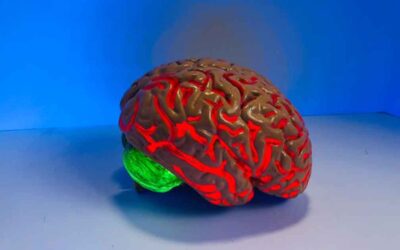Wisdom (‘aql in arabic) is a hidden power of thinking and logic. It discovers unknown realities from the known ones. Wisdom makes logical rules using plausible reasoning by induction and deduction. Wisdom then reaches useful conclusions and results based on these logical rules.
There are several synonyms used for wisdom in practice including but not limited to reason, intellect, insight, acumen, balance, clear thinking, comprehension, enlightenment, foresight, good judgment, clear judgment, judiciousness, prudence, sagacity, sanity, rationality, savvy, shrewdness and understanding. Most prevalent antonyms of wisdom are ignorance and stupidity.
Quran has put a great amount of emphasis on applying wisdom in all matters including gaining the knowledge about God, life after death, interpreting history, relationships of various religions, knowing good and evils, justice and injustice, freedom and oppression, nature of this world, moral and immoral and the purpose of this life.
As a result of this importance, the Qur’an acknowledges the “authority” (hajjah) of wisdom.
Authority of Wisdom in Quran
The issue of the authority of wisdom in Islam is certain. Since the earliest times until the present, none amongst the Islamic scholars –except for a very small number– has ever negated the authority of wisdom; they have counted it as one of the four sources of Islamic fiqh.
The Qur’an’s Emphasis on Clear Reasoning
We first present arguments concerning the authority of wisdom from the Qur’an itself. The Qur’an, in various ways, confirms the authority of wisdom. Hundreds of verses can be cited in which the Qur’an indicates that such and such a matter has been mentioned for wisdom to reflect on. In one instance, the Qur’an refers to this issue in a striking statement:
Surely the worst of beasts in God’s sight are those that are deaf and dumb and do not reason. (8:22)
Of course, it is obvious that the Qur’an does not mean the physically deaf and dumb, but those who do not want to listen to truth, or those who, when they hear, do not wish to admit it with their tongues. In the view of the Qur’an, the ears which are unable to listen to truth and which are only used for listening to absurd and nonsensical things, are deaf. The tongue which is merely used to utter nonsense, is dumb. The people who do not reason, are those who do not make use of their wisdom and their faculty of thought. Such are not fit to be called human beings. The Qur’an includes them among the beasts.
In another verse, the Qur’an explains that even though humans are free to choose between disbelief and belief, however this freedom of choice is only granted by Allah. Further, it warns us of severe consequences of not using wisdom:
And it is not for a soul to believe except by permission of Allah, and He will place defilement upon those who will not use reason. (10:100)
In other words, Quran does not consider those people as wise who do not believe on Allah, his plan and his prophets. Not using wisdom and reason degrades humanity and entraps humans into all kinds of harms. Further, the true believers are full of wisdom and free of any ignorance and harms.
In these two verses, which we quote here for the sake of example, the Qur’an, in the terms of logic, invites us to use our rational faculties. There are many other verses in the Qur’an which, on the basis of logical inference, can be said to accept the authority of wisdom. In other words, the Qur’an makes statements which cannot be accepted without accepting the authority of wisdom.
For instance, an opponent is challenged to present rational argument in favor of his position:
Say: Bring your proof if you are truthful. (2:111)
This can only be inferred to mean the Qur’an’s endorsement on the authority of wisdom. In another place it uses syllogistic reasoning to prove the existence of the Allah as the sole creator (wajib al-wujud):
Were there gods in them [earth and heaven] other than God, they would surely disintegrate … (21:22)
Thus the Qur’an aims at emphasizing the role of wisdom and disproves the view of some of the religions that faith is alien to, or, is incompatible with reason and wisdom. And that to embrace faith one has to suspend his rational faculty and concentrate upon heart alone, so that it may absorb the Divine light and become illuminated by it. This view is totally disproved by the Qur’an.
References to the Law of Causality
The other argument that supports the view that the Qur’an approves of the ultimate authority of wisdom, is that it defines various problems in terms of cause-and-effect relationship. The cause-and-effect relationship, or the law of causation, is the foundation of rational thinking. This law is honored by the Qur’an and is also employed by it.
The Qur’an speaks on behalf of God, the Almighty, the Creator of the system of cause and effect. Despite the fact that His Word transcends the limitations of causality, the Qur’an is not oblivious of pointing out to the system of causality operating in the universe; it views all phenomena and events as being subservient to this system. The following verse supports this view:
Allah does not change the condition of a people until they change their own condition… (13:11)
The Qur’an intends to say that, although all destinies depend on the Will of God, He never imposes upon human beings such fate as is outside and alien to their determination, will and action. The destinies of societies also change according to their intrinsic system of functioning. God does not extravagantly alter the destiny of a nation without any specific reason, unless they themselves bring about a major change in their system of social and moral values and their manner of performing their individual duties.
The Qur’an urges Muslims to study the conditions and circumstances of societies of the past and to take lesson from their history. It is evident that if the destinies of races and nations were random, or dependent upon accidents, or were prescribed from Allah, the advice to study and draw a lesson would not have any sense. By laying emphasis on it, the Qur’an intends to remind us that a uniform system of laws governs the destinies of all the nations of the world. It also reminds us that if the conditions of a society in which we live, are similar to the conditions prevalent in a society of the past, the same fate awaits us too. Elsewhere, the Qur’an says:
How many populations have We destroyed, which were given to wrong-doing? They tumbled down on their roofs. And how many wells are lying idle and neglected, and castles lofty and well-built?. Do they not travel through the land, so that their hearts (and minds) may thus learn wisdom and their ears may thus learn to hear? Truly it is not their eyes that are blind, but their hearts which are in their breasts…. ? (22:45-46)
From this statement, we can infer that the affirmation of the law of causality and the approval of the cause-and-effect relationship, imply the acceptance of authority of wisdom.
Rational Basis of Divine Commands
Another argument which proves that the Qur’an believes in the ultimate authority of wisdom, is that the Qur’an always explains the rationale behind its commands, laws and precepts. The scholars of the principles of the Faith maintain that the harms and benefits caused by human deeds are among the reasons behind laws and commands.
For example, while at one place the Qur’an ordains the performance of prayers, in another place it explains the philosophy of prayer:
Indeed, prayer prohibits immorality and wrongdoing… (29:45)
It mentions the spiritual effects of prayer, and states how the prayer can enlighten man. It explains that it is on account of this exaltation that man can dissociate himself from indecencies.
Elsewhere, after laying down rules for observing the fast, the Qur’an explains the rationale for its command:
O you who have believed, decreed upon you is fasting as it was decreed upon those before you that you may become righteous. (2:183)
Similarly, with respect to other commandments like those regarding zakat (alms) and jihad, the Qur’an clarifies their necessity for individual, as well as for society. In this way, the Qur’an, despite its transcendental nature of Divine commandments, clarifies fully their worldly and moral relevance, and asks men to ponder upon their rationale until their meaning becomes explicit, so that it may not be imagined that these laws are based on a series of occult notions beyond the power of human comprehension.
Combating Deviations of Wisdom
Another evidence in favor of the Qur’an’s affirmation of the authority of wisdom –which is more conclusive than that mentioned above– is the battle it launched against all those agents which obstruct the proper functioning of wisdom. For clarity, we will again cite some examples as a reference.
The human mind can, in many cases, fall into error. This fact is acknowledged by all of us. However, this danger is not limited to the intellect alone, but can equally befall the senses, and feelings as well. Just for the sense of vision, scores of visual errors and optical illusions have been pointed out in various research texts. In the case of wisdom, too, there are times when people frame an argument and rationale and draw an inference on its basis, but later on they realize that the basis of their conclusion was erroneous.
Here the question arises, whether the faculty of wisdom should be suspended on account of its occasional failures, or whether we should employ other means for discovering the errors of the intellect and seek to avoid such errors. In answering this question, the Sophists said that reason should not be relied upon, and that, basically, argumentation and reasoning is an absurd practice.
Other philosophers have given a fitting reply to the Sophists, and said that though the senses can also err like reason, but no one has ever recommended their suspension. Since it was not possible to discard wisdom, the philosophers resolved to find ways of making wisdom secure from error.
During their efforts in this regard, they discovered that all arguments consist of two parts, namely, matter and form. Like a building which has various ingredients in its construction, like, lime, cement, steel, etc. (matter), to acquire a specific structure (form). In order to attain the permanence and perfection of its construction, it is essential to procure proper material as well as to draw a perfect and faultless plan. For the correctness and accuracy of an argument, too, it is essential that its content and form be both free of error and defect. For judging the validity of the form of any argument, the Aristotelian or formal logic came into existence. The function of formal logic is to determine the accuracy or inaccuracy of the form of an argument, and help the mind to avoid errors in the process of reasoning.
However, solely formal logic is inadequate for the correctness of an arguement as it cannot alone guarantee the validity of an argument. It can give assurance about one aspect alone. To obtain the perfection of the material aspect, the use of material logic is also essential, that is, we need certain criteria for controlling the quality of the rational material.
Thinkers like Bacon and Descartes strove hard to evolve some kind of material logic similar to the formal logic of Aristotle, which was devised for formal reasoning. They did obtain certain criteria in this regard, though they are not as universal as those of Aristotelian logic, but are, to a limited extent, helpful in preventing the mind from committing errors in reasoning.
Some may be surprised to know that the Qur’an has presented such principles for the prevention of any lapses in the process of reasoning, which surpass in merit and precedence the efforts of philosophers like Descartes and others.
The Qur’anic Viewpoint Regarding the Sources of Error
Among various sources of error mentioned by the Qur’an, one is that of taking conjecture and hypothesis for certainty and conviction. If a person were to adhere to the principle of putting conviction only in certainties and of not confusing between conjectures and certainties, he would not fall into error. The Qur’an lays great emphasis on this problem, and has clearly stated in one place that one of the biggest errors of the human mind is pursuit of conjectures and hypotheses.
In another verse, which is addressed to the Prophet (S), the Qur’an says:
And if you obey most of those in the earth, they will lead you astray from Allah’s way; they follow but conjecture and they do but guess. (6:116)
This verse clearly indicates that majority of people do not follow correct logic and sound thinking and go away from the right path because instead they follow their emotions, desires, personal interests and false conjectures.
In another verse, the Qur’an says:
And do not pursue that of which you have no knowledge… (17:36)
This is the word of caution to mankind extended by the Qur’an, for the first time in the history of human ideas, warning mankind against this kind of error.
The second source of error in the reasoning process, which is particularly relevant in social issues, is imitation. Most people are such that they accept whatever beliefs that are current in their society. They adopt certain beliefs merely for the reason that they were followed by their preceding generation. The Qur’an bids people to carefully scrutinize all ideas and judge them by the criteria of wisdom –neither to follow blindly the conventional beliefs and traditions of their ancestors, nor to reject them totally without any rational justification.
Quran reminds us that there are many false doctrines that were introduced in the past, but were accepted by the people, and there are also certain truths that were presented in the distant past, but people resisted them on account of their ignorance. In accepting any ideas or principles, men are advised to make use of their intellects and rational faculties, and not to indulge in blind imitation. Very often, the Qur’an puts imitation of ancestors in direct opposition to wisdom and intellect:
And when it is said to them: ‘Follow what God has sent down’, they say, ‘No; but we will follow such things as we found our fathers doing.’ What? Even if their fathers had no understanding of anything, and if they were not guided ? (2:170)
The Qur’an constantly reiterates that the antiquity of an idea is neither the evidence of its falsity, nor it is a testimony of its truthfulness. Antiquity affects material objects; but the eternal truths of existence never become old and outmoded. Truths like:
God changes not what is in a people, until they change what is in themselves … (13:11)
are true for ever and ever. The Qur’an asks us to face issues with the weapon of wisdom and intellect. One should neither forsake a belief for fear of becoming the target of others’ ridicule and mockery, nor should he accept a belief just because it is upheld by some important and well- known persons. We should ourselves study and investigate the roots of all matters and draw our own conclusions.
A Third effective source of error pointed out by the Qur’an is Selfish motives which stain virtue and merit and cause a cascade of curtains that block clear thinking and vision.
They follow but a guess and that which (they) themselves desire. And now the guidance from their Lord hath come unto them..(53:23)
Unless one maintains objectivity and neutrality in every matter, he is unlikely to think correctly. Wisdom can function properly only in an atmosphere that is free of selfish desires and motives. A well-known anecdote of great Islamic scholar, al-Allamah al-Hilli, can illustrate this point.
A problem of jurisprudence was put before al-Allamah al-Hilli: If an animal falls inside a well, and the carcass cannot be removed; what should be done with the well? Incidentally, during the same days, an animal happened to fall into the well in his own house, and it became inevitable for him to deduce an injunction to solve his own problem, too There were two possible ways to solve the issue: Firstly, the well should be totally closed, not to be used again; secondly, a fixed quantity of water should be emptied from the well and the rest of well’s water would be clean and usable. The Allamah realized that he could not give a completely impartial verdict about the problem without interference from his own personal interest. Accordingly, he ordered his own well be closed. Then, with an easy mind, free of the pressure of selfish motives, he turned to deducing the details of verdict in the second case.
The Qur’an contains a large number of warnings regarding the evil of submission to personal desires. The following is just some instances of it:
O ye who believe! stand out firmly for justice, as witnesses to Allah, even as against yourselves, or your parents, or your kin, and whether it be (against) rich or poor: for Allah can best protect both. Follow not the lusts (of your hearts), lest you not be just, and if you distort (justice) or decline to do justice, verily Allah is well-acquainted with all that ye do. (4:135)
O David, indeed We have made you a successor upon the earth, so judge between the people in truth and do not follow [your own] desire, as it will lead you astray from the way of Allah.” Indeed, those who go astray from the way of Allah will have a severe punishment for having forgotten the Day of Account.(38:26)
References
Murtada Mutahhari (Muharram – Rajab 1404 AH). Understanding the Uniqueness of the Qur’an. Al-Tawhid, Translated from the Persian by Mahliqa Qara’i, Vol I, No. 1-3





0 Comments